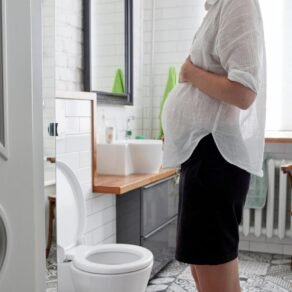the Concerns pregnancy can i sleep on my back
Sleeping comfortably during pregnancy can be a challenge, especially as the body undergoes significant changes to accommodate the growing baby. Among the concerns expectant mothers may have is whether it’s safe to sleep on their back. Let’s explore this topic pregnancy can i sleep on my back .
The Importance of Sleep Position
Sleep quality and position become increasingly important during pregnancy to ensure both maternal and fetal well-being. As the uterus expands, it can put pressure on blood vessels and organs, potentially leading to discomfort and even health risks depending on sleep position.
The Back Sleeping Debate
Sleeping on the back during pregnancy has been a subject of debate among healthcare professionals. Some studies suggest that sleeping on the back, especially in the later stages of pregnancy, may increase the risk of certain complications, including:
- Supine Hypotensive Syndrome: This condition occurs when the weight of the uterus compresses the inferior vena cava, a major blood vessel, reducing blood flow to the heart and uterus. This can lead to dizziness, shortness of breath, and decreased blood flow to the baby.
- Stillbirth: Some research indicates a possible link between back sleeping in late pregnancy and an increased risk of stillbirth. However, further studies are needed to establish a definitive causal relationship.
Safe Sleep Positions During Pregnancy
To ensure optimal comfort and safety during pregnancy, healthcare providers generally recommend the following sleep positions:
- Side Sleeping: Sleeping on the left side is often recommended as it improves blood flow to the heart, uterus, and baby. However, sleeping on the right side is also considered safe and may be more comfortable for some women.
- Use of Pillows: Placing pillows under the abdomen, between the legs, and behind the back can provide support and alleviate discomfort while side sleeping.
- Avoidance of Supine Position: While occasional back sleeping may not pose significant risks, particularly in the earlier stages of pregnancy, it’s advisable to avoid prolonged periods of supine sleeping, especially as pregnancy progresses.
Individual Considerations
Every pregnancy is unique, and the optimal sleep position may vary from woman to woman. Factors such as pre-existing medical conditions, gestational age, and comfort level should be taken into account when determining the most suitable sleep position.
Consultation with Healthcare Provider
Expectant mothers who have concerns about sleep positions or experience discomfort while sleeping should consult with their healthcare provider. They can provide personalized guidance based on individual circumstances and offer strategies to promote better sleep quality during pregnancy.
Conclusion
While the safety of back sleeping during pregnancy remains uncertain, prioritizing comfort and safety is crucial. Understanding risks and following recommended sleep positions helps pregnant women support their well-being and their baby’s health.





